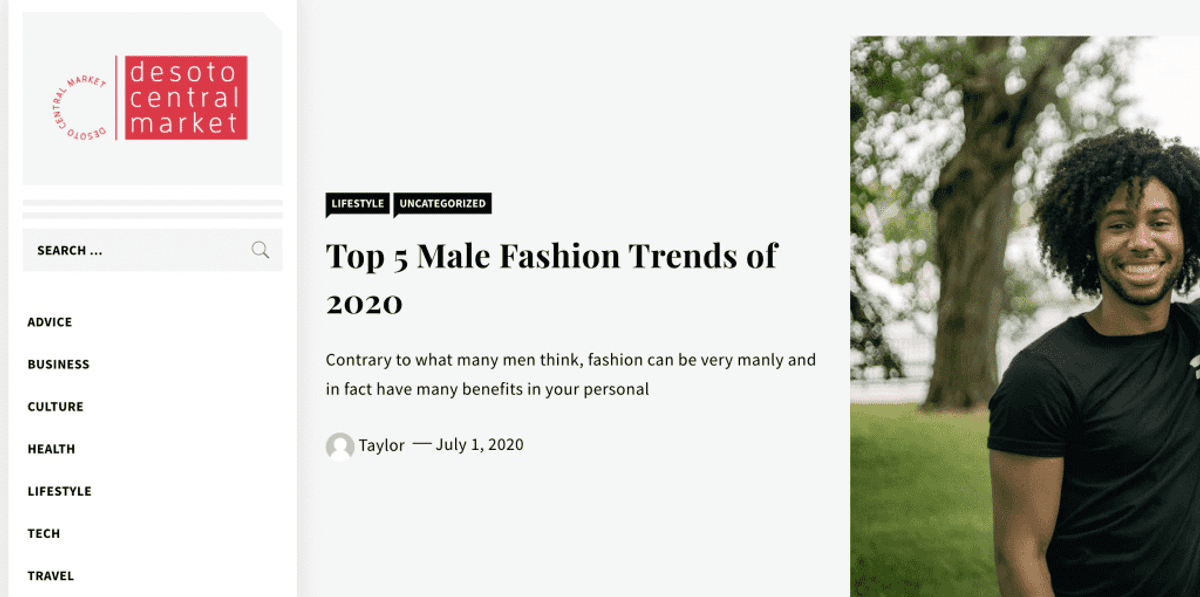
Not all backlinks are equal. While earning inbound links to your website is great, some of them aren’t the kinds you want in your backlink profile.
Bad incoming links—like those gained through link farming—could result in a Google Penalty, significantly damaging your website and search engine result page (SERP) rankings.
Also known as a manual action, a Google Penalty is when your website’s backlink profile is reviewed by a human and is found to contain unnatural links that intentionally manipulate or deceive search engines.
This penalty could cause a damaging decrease in web traffic and may even result in your website being removed from SERPs completely.
In this article, we will discuss:
💡 What link farming is.
💡 How to detect link farms.
💡 Some examples of real-life link farms.
What Is a Link Farm?
A link farm is a website that operates for the sole purpose of linking to other sites. Link farming is a black hat technique, meaning it’s a questionable way of earning backlinks that goes against Google’s Webmaster Guidelines.
What Is Black Hat SEO?
Black hat search engine optimization (SEO) techniques are those that are used to intentionally and maliciously manipulate Google and other search engines to result in better rankings. Link farming is a black hat link-building technique.
Usually, the owner of a link farm sells links by adding them to existing posts or by publishing guest posts. Link farming is an easy way for a site owner to make money and for the brands that use them to gain inbound links. Link farm site owners try to sell as many links and posts on their website as possible, knowing the site will inevitably crash.

Link farms often look like regular web pages, but several tell-tale signs show something is amiss.
These may include:
❌ Poorly written content.
❌ Articles about unrelated niches.
❌ Plenty of suspicious external links.
👉 We’ll investigate more of these signs shortly.
An Example of Link Farming Through an Expired Domain
There’s a very popular method that some search engine optimization (SEO) professionals implement, which is to buy expired domains that have a high domain rating (DR) or domain authority (DA) score, and then turn them into a link farm.
💡 DA and DR are scores developed by SEO tools Moz and Ahrefs, respectively, to rate a website’s authority and relevance on a scale of 1 to 100.
The aim is to trick SEO novices into thinking the link farm is a legitimate and authoritative site. However, the reality is that these sites don’t get any solid traffic from Google, and they’ve simply been created to sell links.
Does Google hate link farming?
It’s safe to say that using a link farm is not good for a website’s SEO. Earning links from one of these sites is unlikely to have any positive impact on your search engine ranking.
In December 2022, Google released an update called SpamBrain that nullifies inbound links from link farms. This means that Google’s ranking algorithm completely ignores—and penalizes—reciprocal linking from link farms.
Inbound links from these sites can harm your SEO efforts. If Google thinks you have been paying for links, it may penalize your website, even if you didn’t know you’d been attracting black hat backlinks.
Is a link farm a PBN?
A link farm isn’t the same as a private blog network (PBN), but it could be part of one.
Private blog networks are a group of websites that people use to bolster the authority of other sites they own. The idea is that it improves their member websites' search engine rankings.
It wouldn’t make sense for a PBN owner to use their network to sell backlinks. This would open it up to scrutiny from Google.
But a PBN operator might squeeze extra revenue out of sites by using some of them as link farms if:
A search engine like Google has already discovered the PBN.
The sites aren’t passing on any positive rank to the network.
Why do link farms have high DA?
Don’t let SEO metrics trick you into thinking a website is worth targeting in your link-building outreach campaigns.
Despite the generally poor quality of the content on link farms, SEO tools will often show that they have a high authority score.
There are many reasons to build link farms on high authority domains, and it's a common practice.
The website could be:
Built on an expired domain with an existing high DA.
A formally authoritative website that once offered value but has since been neglected.
Part of a PBN that is artificially increasing its domain metrics.
While SEO tools don’t show this on their domain authority rankings, Google’s ranking algorithms usually know which sites are spam and rank them accordingly.
This means even if the site has good domain metrics, you should still avoid them as they will harm rather than help your website's page rank.
How to Identify Link Farms
Now that you know more about link farming and how detrimental it can be to your business, let’s explore how you can identify and avoid these websites.
Here are some of the main warning signs that may indicate a link farm.
🚩 A basic or templated design
Link farm owners don’t tend to spend much time or money on a site’s design. They often use a basic page template that their hosting platform provides with a few modifications.
In contrast, high-quality sites typically have a customized design that adds to the overall user experience.
🚩 Posts on unrelated topics
Link farms are happy to point backlinks to any site that pays them. The result is a collection of articles on an unusual range of topics.
Be especially wary of websites with many articles from competitive niches that are hard to get inbound links from. For example, casinos and pharmaceuticals.
🚩 Poorly written articles
Guest posts on link farms aren’t written to be read. They’re written to hide links to other sites.
This means the people creating this content will typically write it as cheaply as possible, resulting in low-quality, generic articles.
🚩 Anonymous authors
People don’t want their names associated with this type of website.
The author will often be an anonymous name like “guest writer,” “guest post,” or “Team [website name].”
🚩 Very little original content
People operating link farms don’t spend time creating especially good content for these sites. Because of this, most of their content will consist of guest posts.
🚩 Ambiguous ‘about page’ information
Link farms tend to have minimal ‘about page’ information. You’re unlikely to find the site owner or their contact details.
If there is a contact page, it will usually just be a way to get in touch about buying links.
🚩 Many external links
Link farms will have a lot of external backlinks. Look for awkwardly placed links to unrelated sites with keyword-rich, descriptive anchor text.
💡 Not All Low-Quality Sites Are Link Farms
It’s worth noting that not every site with one of these red flags is necessarily a link farm.
Plenty of legitimate websites don’t add author information, and almost every site adds external links to articles.
But be wary of placing a backlink on a site that checks too many of the above boxes. Think about your link choices carefully.
3 Examples of Link Farms
To give you more context, we've put together examples of three link farms below. Based on the red flags outlined above, it’s clear that these sites have been created for the purpose of selling links to people who want to rank in search results.
Obviously, we've set these outbound links to nofollow because we don't want these sites getting any link juice!
Example 1 - IsItVivid.com

We discovered this site when running a link audit for one of our new clients. Their previous link-building agency had placed a link here and sold them on the fact that it was a 'good link' because the site has a DR score of 72.
However, this site hasn't had any real organic traffic for years, and you can clearly see something is off just by looking at the metrics and the overall website design.

Example 2 - Technofizi.net

This is a somewhat less obvious example as the site has over 300,000 visitors per month according to Ahrefs.
So we have a slightly more sophisticated link farm on our hands here. But the telltale signs are obvious:
❌ They rank for many low-quality brand names. Even if they rank top 10, the Ahrefs algorithm will think they're getting plenty of traffic.
❌ 100% of the content is low-quality, generated only to link out to other websites.
❌ There are no real people behind this website.
💡 Avoid Sites with 'Tech' in Their Name
As a general rule, you should avoid any domain with the phrase ‘tech’ in it, like the one above. In our experience, 95% or more of those domains are link farms that generate spammy content.
People create these websites because ‘tech’ is a highly popular category. Many tech companies are looking to build links and improve their SEO rankings.
Of course, you get the occasional legitimate site like TechCrunch—which is obviously an amazing domain—but these are the exceptions.
Example 3 -DesotoCentralMarket.com

This one is more obviously a link farm. The instant giveaway here is the category navigation bar on the left.
They're creating business, culture, health, lifestyle, tech, and travel content. Why? Because it means they can appear relevant to a wide range of potential link buyers.
In our view, this is another very obvious link farm and should be completely avoided.

How to Know If Your Link-Building Service Uses Link Farms
Unfortunately, some SEO services use link farming to generate inbound links for their clients.
They do this because it means they can sidestep the time-consuming and expensive process of building links correctly—like creating quality content and manual outreach.
Instead, they can simply place backlinks on link farms they own or have relationships with to inflate your DA artificially.
It’s an easy win for the link builder but a complete waste of money for the clients.
The issue is that it can be difficult to know which sites backlink building services will use to generate links. Here are the warning signs that should make you think twice:
Guaranteed links: There are no guarantees in link building—it’s up to website owners to decide whether to link to your site. If a service guarantees links on a particular site or type of site, it may be using link farming.
Fast links: Generating backlinks takes time. You need to find suitable websites, negotiate with owners, and then create relevant, quality content. Look out for services that promise quick results.
Low cost: Link building costs money to do well. Manual outreach and writing guest posts can be expensive. If the price is suspiciously low, it suggests the service may be using shortcuts like link farming.
Lack of results: Farmed links aren’t effective. It’s definitely a warning sign if the service can’t provide detailed testimonials or case studies showing how it has influenced various sites’ search rankings.
Unfortunately, there is no way of knowing for sure whether a service will build spammy backlinks or not. When it comes to link building, if it sounds too good to be true, it probably is.
We recommend talking to your link-building service provider and discussing the strategy they will use to build links to your website. You can also ask to see examples of how their efforts have impacted their past and current clients’ ranking on search engines.
Wrapping up on Link Farming
Is link farming worth it? Absolutely not.
Not only do you risk getting a Google Penalty by having these links in your profile, but you could also completely tarnish your brand’s reputation.
Our advice is to act with caution when developing your list of target websites for your outreach efforts. Ensure that you check each website for the warning signs we mentioned before contacting the webmaster, and avoid working with agencies that promise fast and guaranteed results.
We use only the best link-building techniques to help our clients earn backlinks. We’re experts in identifying high-quality, relevant websites that aren’t involved in link farming. With us, you never run the risk of a manual action.
Visit our website to learn more about our agency and the link-building tactics we use to ensure search engines love your website.


